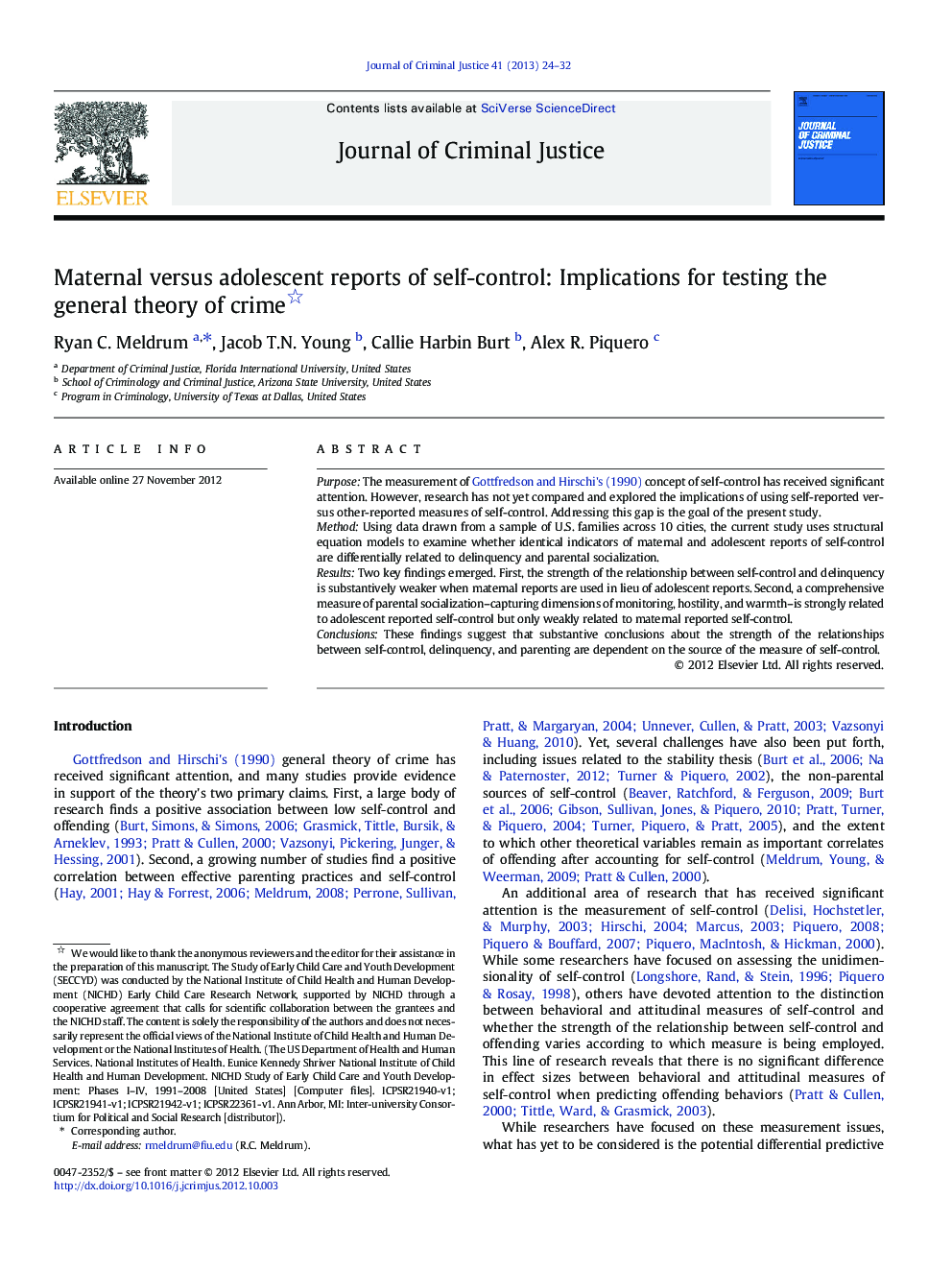| Article ID | Journal | Published Year | Pages | File Type |
|---|---|---|---|---|
| 882756 | Journal of Criminal Justice | 2013 | 9 Pages |
PurposeThe measurement of Gottfredson and Hirschi's (1990) concept of self-control has received significant attention. However, research has not yet compared and explored the implications of using self-reported versus other-reported measures of self-control. Addressing this gap is the goal of the present study.MethodUsing data drawn from a sample of U.S. families across 10 cities, the current study uses structural equation models to examine whether identical indicators of maternal and adolescent reports of self-control are differentially related to delinquency and parental socialization.ResultsTwo key findings emerged. First, the strength of the relationship between self-control and delinquency is substantively weaker when maternal reports are used in lieu of adolescent reports. Second, a comprehensive measure of parental socialization--capturing dimensions of monitoring, hostility, and warmth--is strongly related to adolescent reported self-control but only weakly related to maternal reported self-control.ConclusionsThese findings suggest that substantive conclusions about the strength of the relationships between self-control, delinquency, and parenting are dependent on the source of the measure of self-control.
► The strength of the association between self-control and delinquency varies by informant type. ► The strength of the association between parenting and self-control varies by informant type. ► Self-reported and other-reported measures of self-control cannot be used interchangeably.
